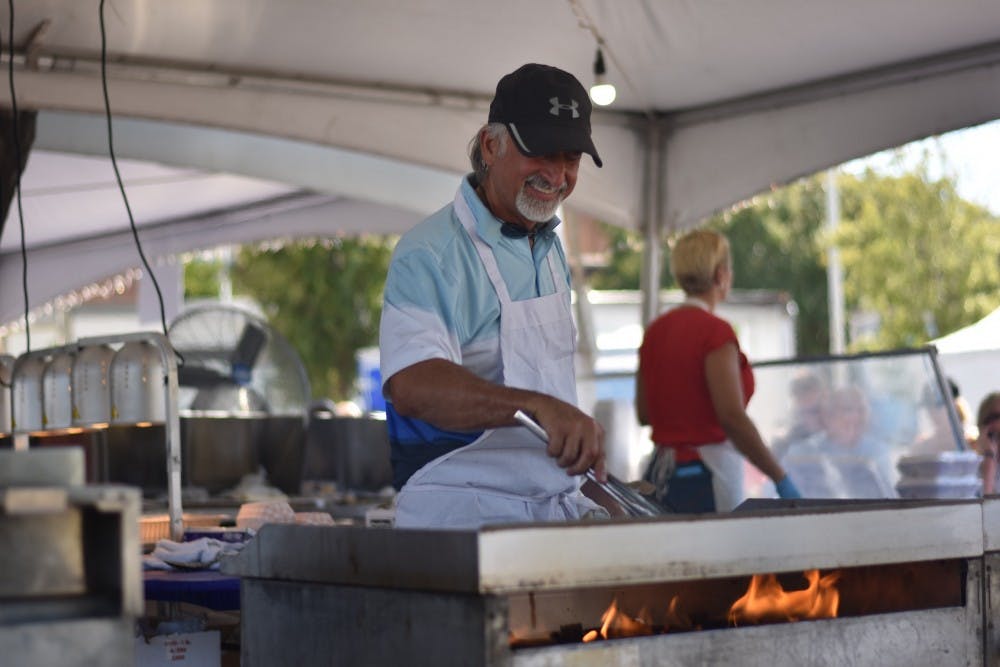The Greek Festival in Columbia brings in people from all over the community to celebrate Greek culture. The festival has taken place at the Holy Trinity Greek Orthodox Cathedral for 33 years and continues to grow every year.
The festival first began as a “Greek night” where people would come to dance and have dinner. The Rev. Michael Platanis, the dean of the church, said the event expanded over the years in line with community feedback.
The Holy Trinity Greek Orthodox Cathedral was rebuilt in 2011 in order to keep up with its growing population. The church community also purchased more land around the church in order to allow more space for people to attend the festival. Today, the festival offers visitors a number of different activities to take part in.
“There’s all kinds of things," Platanis said. "Of course music – they play Greek music inside, in the gym and outside in the parking lot in the covered tent, they have kids who dance, perform. We have church tours, we have all kinds of vendors selling Greek products and other things.”
The vendors at the festival are not owned by the church. Many of them attend various other Greek Festivals in order to sell their products. Joann Zimbalist is one such vendor who has made a career out of selling arts and crafts at Greek festivals.
“I’ve been coming for about 10 years," Zimbalist said. "I travel all over the country and set up at Greek festivals. Columbia Greek Festival's one of the best."
Zimbalist said about 100,000 people attend the festival, making it a big event. Additionally, a variety of foods are offered, including chicken, lamb, meatballs, stuffed grape leaves, gyros, Mediterranean sliders and souvlaki – grilled meat and vegetables on a skewer. Most of the food is prepared by the church members, and the menu changes year to year.
“If it’s not possible to prepare it and serve it nicely, we’d rather not serve it,” Platanis said.
Most of the staff at the Greek Festival is made up of volunteers, including USC students looking to satisfy community service hours. According to Platanis, there's no better way of fulfilling them than working "a good event like this."
Not only do USC students volunteer to work at the festival, but a lot of the festival attendees are also USC students. Jill Boggs, a third-year history student, visited the Greek Festival for her first time on Thursday.
“It’s really good food," Boggs said. "It’s a lot bigger than I expected, actually – I thought it would just kind of be in the church, but it’s really nice.”
Ultimately, Platanis said the festival's main purpose is to create a sense of community.
“[It’s] hospitality and fellowship” Platanis said. “The love of strangers, the welcoming of strangers is a very deep, Hellenistic quality.”
The four-day festival is open to everyone and free to attend. This year’s festival runs from Sept. 19 to Sept. 22.

